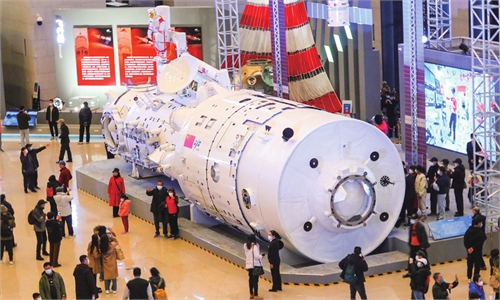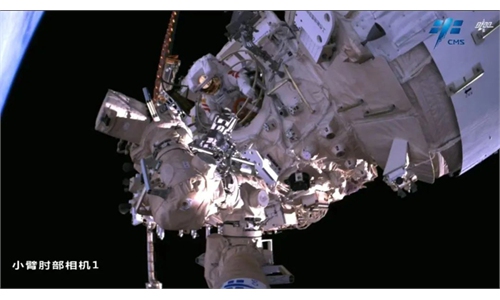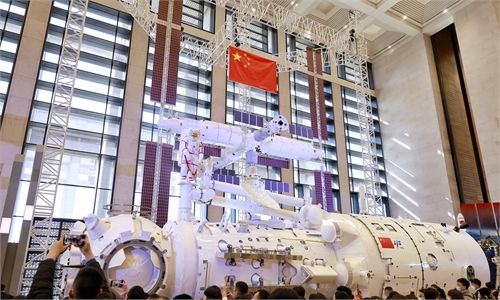IN-DEPTH / IN-DEPTH
Moon Village Association president hails China’s space and lunar explorations
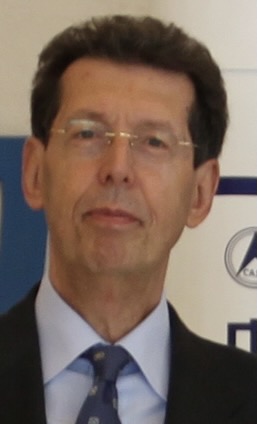
The Moon Village Association President Giuseppe Reibaldi (Photo: Courtesy of Reibaldi)
The moon is the next giant leap of humanity and as such we need to cooperate, not create barriers, senior space policy advisor Giuseppe Reibaldi, president and founder of the Moon Village Association (MVA), told the Global Times in an exclusive interview.
"The further we go from the Earth, the more the cooperation is required," he said, noting that China's contribution in promoting international collaboration in space exploration "will be very important," considering China's current and future major space infrastructures such as the China Space Station (CSS) Tiangong.
While the CSS welcomes international scientific research projects and positively embraces astronauts of various countries, some countries and organizations reportedly take a step back due to possible political pressures.
In late January, the European Space Agency (ESA) Director General Josef Aschbacher said the agency will not send astronauts to the CSS, as it has "neither the budgetary nor the political…green light or intention to engage in a second space station," the Space News reported.
Reibaldi believes the cooperation in space between China and Europe is in line with the volatility present in the current international relations landscape, which "will be difficult" if the international relations situation is not stabilized.
Reibaldi is, nonetheless, optimistic about space being a good avenue for international cooperation.
Probably some form of coordination could take place between the different scientific programs, he added.
"Even in this present complex political landscape, operations are proceeding in a nominal way," he told the Global Times.
The CSS is open to the world for cooperation, with nine projects from 17 countries having been selected as the first batch of scientific experiments in Tiangong.
Reibaldi spoke highly of China's attitude of opening its space station to the United Nations members via UNOOSA (United Nations Office for Outer Space Affairs), saying it's a good development in fostering international cooperation.
However, the presence of the CSS is not very known in the world, as there is little information in circulation outside China, said Reibaldi. "More outreach about the CSS should be carried, as this will increase the awareness and bring possibly more countries involved in the CSS," he suggested.
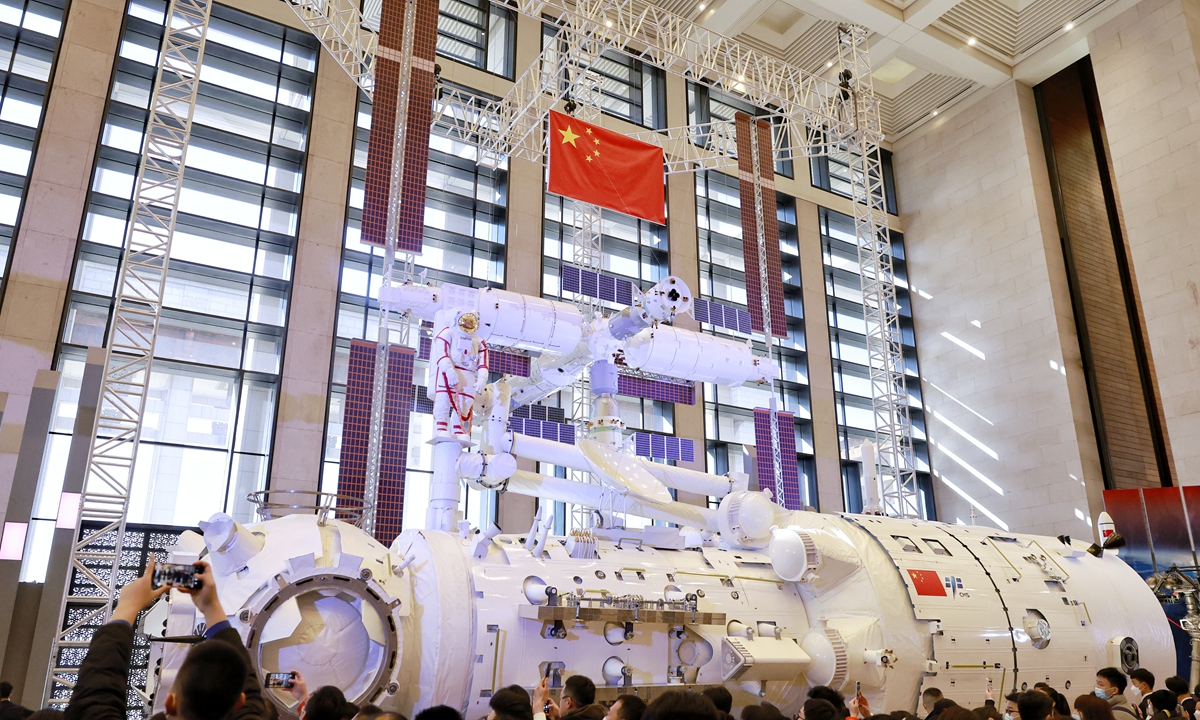
Visitors take photos of the 1:1 scale model of the Tianhe core module of China's space station on February 24, 2023. The model is part of an exhibition showcasing the achievements of China's manned space program over the past three decades, which opened the same day and will run for three months. Photos: Li Hao/GT
The International Lunar Research Station (ILRS), a mega space project jointly proposed by China and Russia that is scheduled to become operational by 2035, has selected five primary scientific and application objectives including learning about the moon's evolution, Chinese scientists in lunar and deep space exploration told the Global Times last month.
The ILRS is seen by some as an effort by China and Russia to counter the American Artemis program in conjunction with US allies. The National Aeronautics and Space Administration (NASA) had previously recruited partners for the program, and China and Russia were not on its partner list.
To this statement, Reibaldi said he believes that "Artemis and ILRS must not be seen [as being] in competition," instead they should cooperate with each other.
"The moon is a hard place to live and work and is evident that rules of cooperation must be agreed upon soon," he noted. "The moon is a laboratory for peace and as such, countries should set up international coordination mechanisms."
The MVA was created in 2017 to foster global cooperation for the implementation of the concept of the Moon Village, a community of multi-stakeholders engaged in the peaceful exploration and utilization of the moon, Reibaldi introduced.
The MVA set up the Global Expert Group on Sustainable Lunar Activities (GEGSLA) in 2021 to define concrete mechanism of cooperation for lunar activities, said Reibaldi, who is also GEGSLA's Executive Secretary.
The Group is comprised of more than 40 countries with representatives from industry, space agencies, government representatives, academia, and international organizations. "It also includes a strong Chinese delegation," Reibaldi said.

